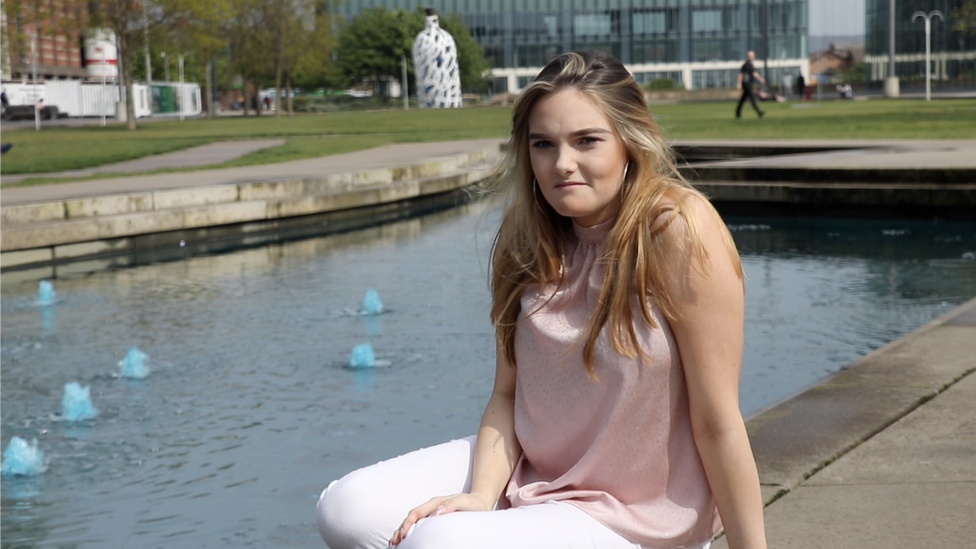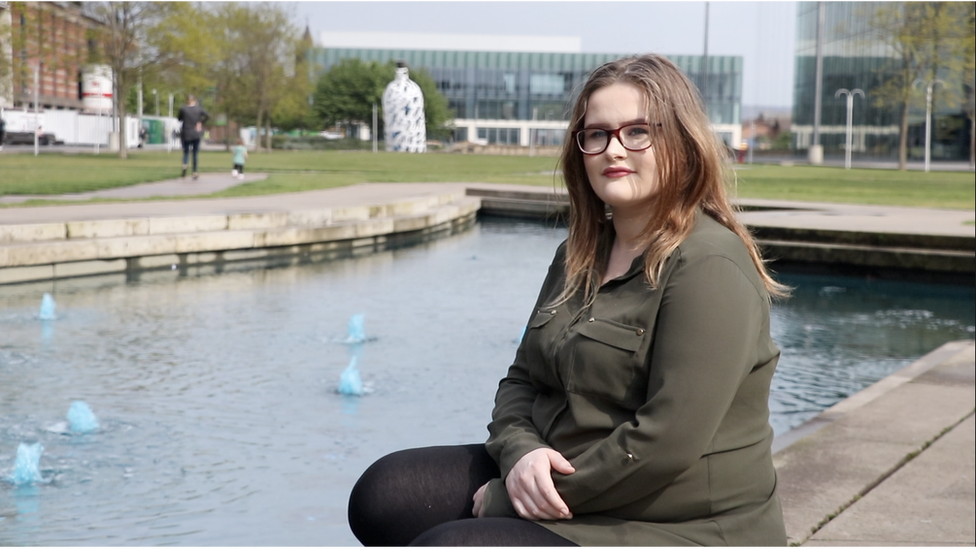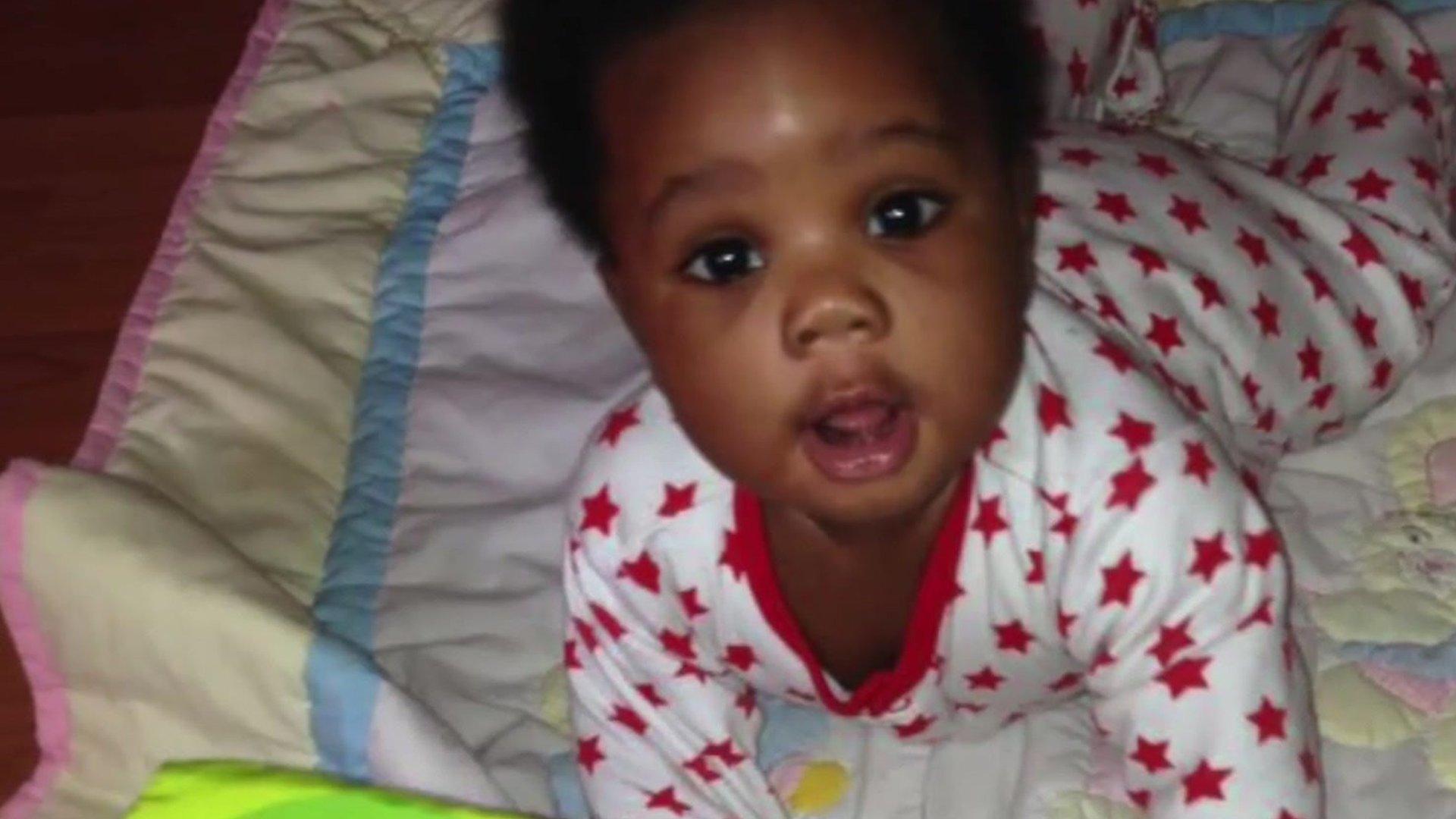We Are Middlesbrough: Pregnant teenagers tell their story
- Published
We Are Middlesbrough: Pregnant teenagers tell their story
Middlesbrough has the highest rate of teenage pregnancy in England and Wales. But one 16-year-old from the town says getting pregnant saved her life.
Robyn used to "get mortal" (drunk) and "end up at random parties". But when she was pregnant, she vowed to change.
She stopped drinking and smoking marijuana, saying: "I used to be pretty crazy. Being pregnant has calmed me down."
Teen births have been falling nationally but rising in Middlesbrough.
Robyn's mother Shelly recalls one night when the police arrived at the house - yet again.
"It was around midnight and the police knocked on the door - they were bringing Robyn home from a party.
"She'd drunk an entire bottle of vodka at an unknown man's flat, passed out, got into the bath and was found sprawled naked on the living room floor. She was 15."

Robyn added: "When I met my boyfriend and got pregnant I realised that that couldn't happen any more.
"I'm so excited to meet my baby girl - we had a gender reveal party and even though I would have been happy with a boy, I really wanted my own little girl.
"When we popped the balloon and I saw the pink confetti, I cried with happiness."
Her daughter is due at the end of June.

Robyn says society has a double standard when it comes to boys and girls
Shelly said: "Robyn is actually the fourth generation of teen mams in our family.
"I've told Robyn it's time to grow up now and she has - I'm proud of how she's changed for her baby.
"When Robyn was a bit older I went to Durham University and completed a degree in human science - I think of it as doing my life the other way around."
In Middlesbrough, there were 43.8 teen pregnancies per 1,000 girls in the year to December 2017, compared with an average of 17.9 in England and Wales.
The next highest rate was in St Helens in Merseyside with 37.1 pregnancies per 1,000 teenagers.

Teenage pregnancy is linked to fewer life chances, external - a higher risk of the child and the parent living in poverty, an increased risk of infant mortality and a higher chance of the mother experiencing mental health problems.
It is more then 15 years since the government launched its Teenage Pregnancy Strategy in response to England having one of the highest teenage pregnancy rates in Western Europe.
Since then, the under-18 conception rate has dropped by 60% and the proportion of teenage mothers in education and training has doubled.
But in Middlesbrough over the two years from 2015 to 2017 it jumped from 36.5 to 43.8 - a rise of 20%.

Megan says she has to restrict herself in order to care for her baby
Megan, who is also from Middlesbrough, was 17 when she learned she was 23 weeks pregnant with her baby boy.
She said: "My baby will be loved and cared for.
"I've finished my college course in performing arts and after about a year out I plan to either go back to college or get a job.
"Being a teenage mam won't stop me. I'm lucky - my family are supportive."
Durham University's professor of sociology Dr Kimberly Jamie said: "We need to stop accepting the middle-class life trajectory as the 'right' way for young people, especially women, to live their lives.
"The school to university to career to house to marriage to children isn't possible or desirable for all young women, yet those who take a different route through life are positioned as irresponsible, or as having somehow failed.
"Teenage pregnancy is understood as a death knell for any kind of career success rather than acknowledging that post-16 education and careers are still available for women in their 30s or 40s when their children are grown up and they have time to start a new career."
This story was created as part of We Are Middlesbrough - a BBC project with people of the town to tell the stories that matter to them.
- Published25 October 2017

- Published29 March 2012
- Published20 November 2017